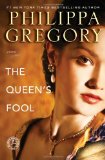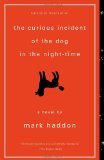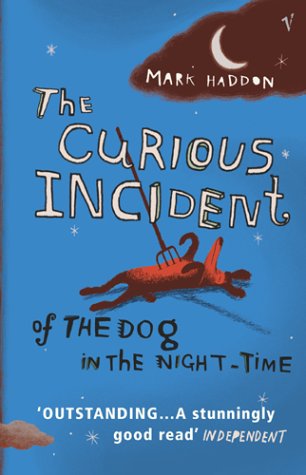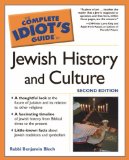 I don’t have a book-rating system, like 1-5 stars, or even something cutesy like apples, because I’m a teacher. If I had one, I’d give Philippa Gregory’s The Queen’s Fool three stars (or apples). Frankly, the author’s odd choice of writing almost completely in comma splices really put me off. I found it hard to concentrate on the story when this major usage error kept popping out at me over and over. I only wish I was exaggerating.
I don’t have a book-rating system, like 1-5 stars, or even something cutesy like apples, because I’m a teacher. If I had one, I’d give Philippa Gregory’s The Queen’s Fool three stars (or apples). Frankly, the author’s odd choice of writing almost completely in comma splices really put me off. I found it hard to concentrate on the story when this major usage error kept popping out at me over and over. I only wish I was exaggerating.
Aside from that, the story moves along, and I was intrigued by the characters. Frankly, I thought the best part of the story was the portion the protagonist, Hannah Green, spent in Calais. I was much more interested in her story as a Jew in the Renaissance than all the palace intrigues.
I did not understand Hannah’s divided loyalties. She seemed to serve several masters and equally love them all, which didn’t make sense to me. Also, no reasons were really shown why she should love these people, who really hadn’t done all that much to earn it, frankly.
The writer seemed to me to choose very obvious aspects of Judaism to demonstrate her characters’ religion, although perhaps this was on purpose, too. One would not necessarily want to confuse Gentile readers who didn’t know much about Judaism. Gregory also has the excuse that her characters are actively hiding their religion and do not remember all their customs, nor keep them out of fear of being discovered as Jews. Still, I found the depiction of this side of Hannah’s life rather basic.
Another complaint I have about Gregory’s writing is that her dialogue is not period, which is something I noted while reading The Other Boleyn Girl. It is a little off-putting to find so much non-period dialogue in a piece of historical fiction. Particularly annoying was the repetitive use of “D’you” for “Did you.”
After I have said all that, you might wonder why it merited the “three stars.” Like I said, it was readable. I did become interested in the characters. I don’t think I could have finished it, considering all its flaws, if it didn’t have these good qualities. I found it odd and intriguing to see Mary portrayed so sympathetically. However, to paraphrase Will Somers, the Fool, history did not remember Mary’s good qualities, just as they did not remember her father’s. As he is remembered as a lecherous wife-killer, she is remembered for her burning of “heretics,” mostly Protestants, which rightly earned her the appellation Bloody Mary.





